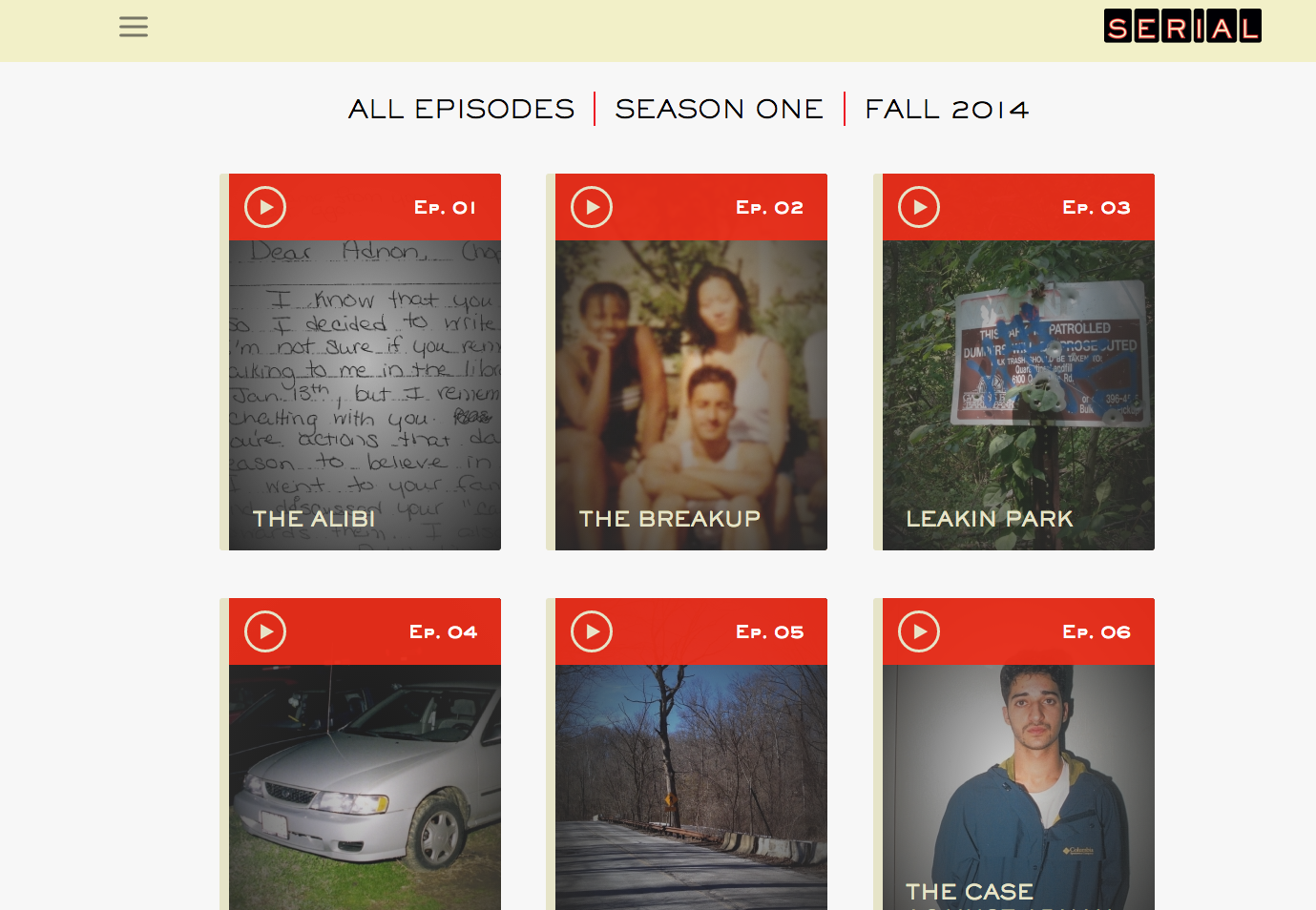A lot of people tuned into the podcast Serial Fall semester. I was one of them. But after five episodes, I was put off enough that I Googled “Serial podcast racism” to see what came up. I found the two articles (among others) that affirmed my disquiet. I stopped listening and I started writing about why.
By Priya R. Chandrasekaran

A lot of people tuned into the podcast Serial Fall semester. I was one of them. But after five episodes, I was put off enough that I Googled “Serial podcast racism” to see what came up. I found the two articles (among others) that affirmed my disquiet. I stopped listening and I started writing about why. About a month later the outcome of what I began that day was published as a post on the blog racialicious. But it feels like there’s something still untold about my process of writing, and in particular writing about race.
At first, writing was, quite obviously, catharsis. I just needed to get something out and it was my mode of expression, an affective experience. But soon it transformed into an act of solidarity; I was writing with others who might share my disquiet. It also transformed into a mode of self-articulation. I was making my politics in a particular situation visible to myself, so I could understand the logic expressed by my feelings. At some point that too changed. I was writing for a larger audience of listeners whom I did not know and most of whom might not agree with my views.
If I was making an intervention into what I felt was a problematic approach to race, my thinking also needed interventions. I can think of two significant periods of “upheaval.”
The debate with my friend that opens my post on racialicious in fact happened well after my writing process was underway. It provoked that conversation. At that time, my response was more frustrated and largely confined within the frames of the writers whose critiques I had read. After that debate, I put away what I had written. Having been challenged by someone whose politics and sensibilities I respected, I realized I hadn’t reconciled with where I stood on some fundamental issues. You could call it a period of “productive agitation.” And productive agitation isn’t always something to work through; sometimes it’s something to sit with. Attending a conference about the Black Radical Tradition at the CUNY Graduate Center and New York University compelled me to return to it again. The talks gave me more clarity on what in my analysis needed to change and what I could stand behind.
A week or so later, it was “done” (or I was done with it). I showed it to a few people. The night the verdict not to indict officer Daniel Pantelao was announced, the friend I previously mentioned and I were having a long conversation about racism. When my article came up, the gist of my friend’s comments seemed to be asking if I was closing doors or opening them with what I had written. I wanted to open them. I also know that sometimes you have to close certain doors to open others. Around the same time, Gary Wilder, who directs the Globalization Committee, sent me comments on the piece. The places where he asked for clarity or said my phrasing “sounded strong” were also places where I could see I had taken some analytical short cut and was relying on a reductive, and perhaps emotive, statement. Another friend who didn’t make it past the first episode of Serial affirmed my general argument. But her friend, an avid Serial listener, sent an email that expressed a very different perspective. I noted that some of his criticisms indicated places where I had to reflect on my motives for writing and my intended audience. I resisted other points he made as these, for me, were nonnegotiable parts of my analysis. Again: productive agitation. Again: I sat with it. The email from Latoya Peterson at racialicious expressing interest in something I had sent her jolted me to start writing again. I listened to the rest of the podcast.
Writing is always a process. What strikes me now is less that I revised my words than the ways I revised my thinking along the way The process kept pushing me toward a new, more nuanced and more aware, understanding of how race was working and simultaneously brushing against the limitations of my perceptions and beliefs as I articulated them to others. I wrote alone, but the process of coming to terms with where I stood, and shifting that stance, was a necessarily collaborative endeavor.
About a month ago the piece was posted. I am thinking now that I should have mentioned that people who are considered either “differently abled” or “mentally ill” are also excluded from the repertoire of “normal.” Also, I recognize that Serial does show how the particularities of cases affect individuals in a vastly bureaucratic judicial system and see that I could have better acknowledged this. But, at some point revising my writing had to stop—that is, if I wanted my words to intervene and still be relevant. I am glad to know that revising my thinking and my politics is an ongoing process. And when that stops, I’ll start worrying.
Priya Chandrasekaran is a doctoral candidate in Anthropology at the Graduate Center, CUNY. Her research, which focuses on women farmers and rainfed grains in the Himalayan foothills, analyzes how competing philosophies of human/nature are written into land, bodies, tastes, and (gendered/classed/raced) social relations, and correspondingly into law, intellectual property, plant genetic material, and social campaigns. She is a Fellow at the Committee on Globalization and Social Change and at the Center for Place, Culture, and Politics.


